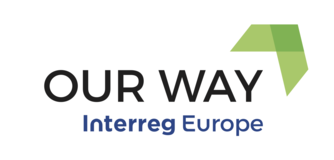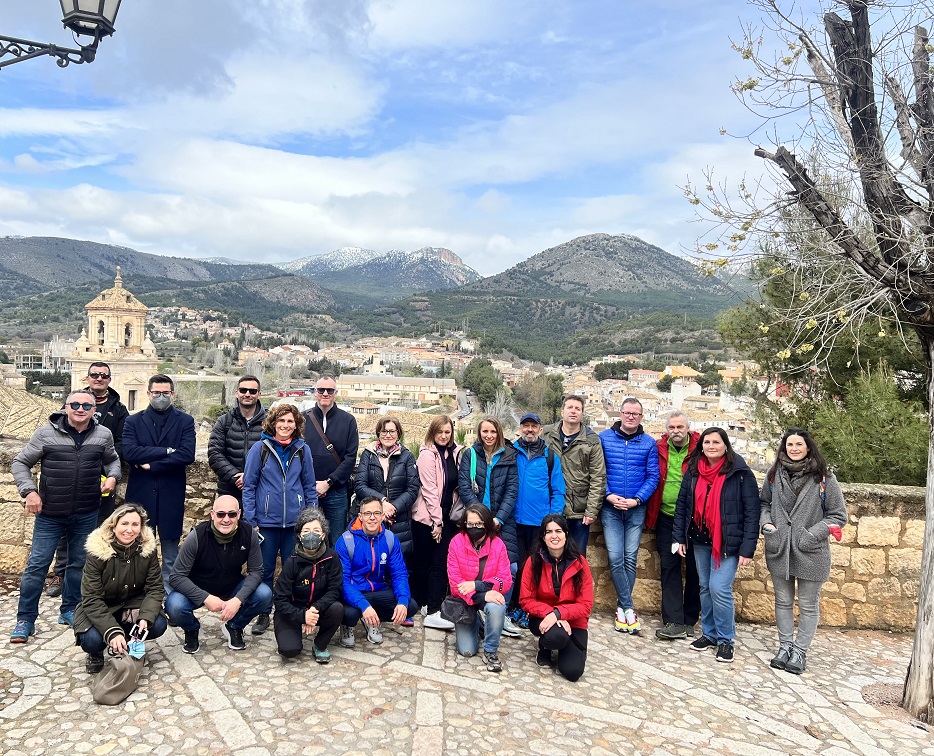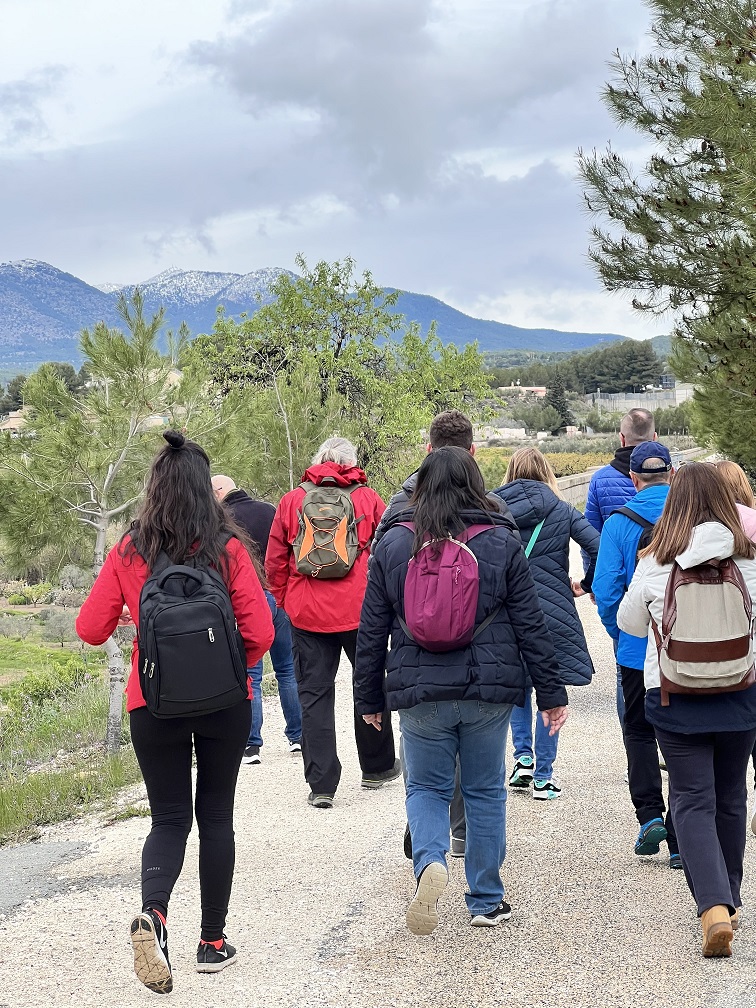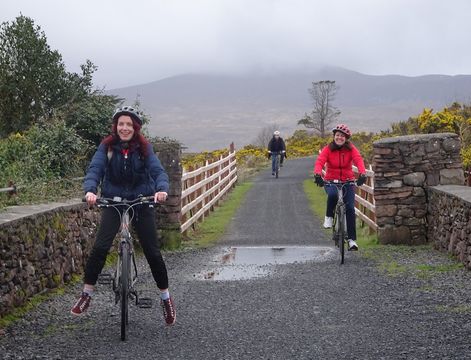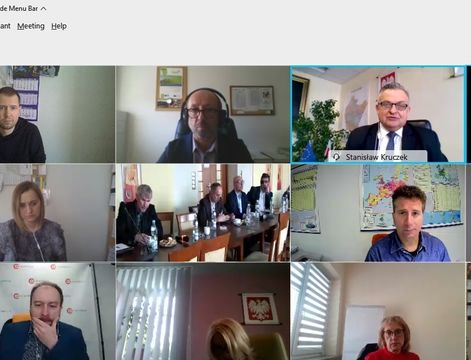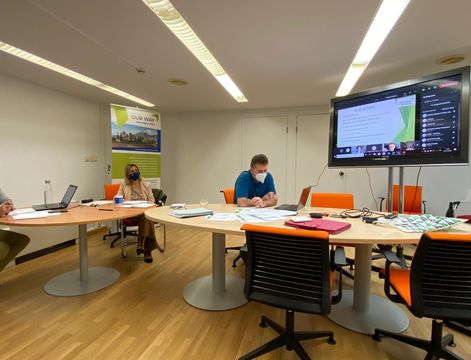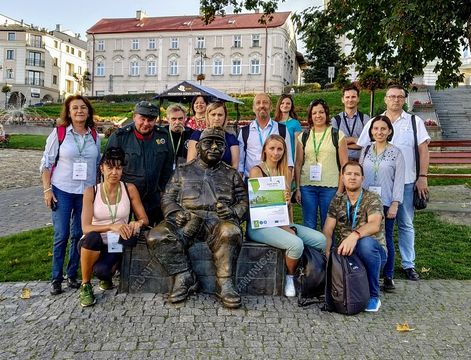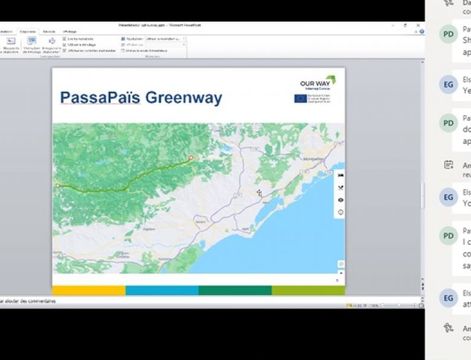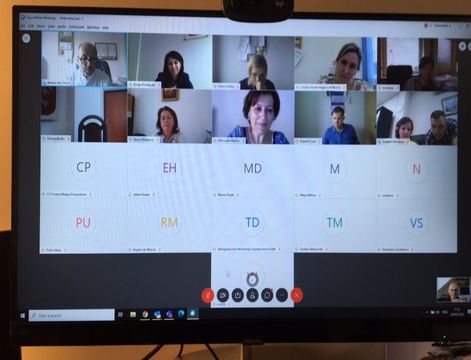Last May 7th we had a monographic online meeting on Action Plans, organized as an alternative to the one planned in Montpellier (France), to be held jointly with the steering committee and a seminar on Promotion, that the pandemic forced us to cancel.
All the partners presented a first draft of the action plan, with different levels of detail, which allowed us to share what concrete actions the partners propose for their territories, in a first approach. 
Other actions addressed to improve governance are also proposed by most of the partners, inspired by the best practices learn in the project and underpinned by the participatory methodology of Interreg through the integration of stakeholders.
The meetings with stakeholders have also been affected and therefore some of the partners have yet to meet to confirm the actions initially included in these plans, and in other cases to precise the content of the specific actions to undertake and to establish the commitments of the stakeholders, necessary for the implementation of the proposed actions.

How could some of the actions be implemented? This important question was raised by some of the partners since we are at the end of the financial year and their budgets have practically finished.
At the request of some of the partners, EGWA, as advisory partner, prepared a report on how the tourism priorities including greenways can be integrated in the current financial period 2014-2020 and are envisaged in the next financial period 2021-2027. The document provides basic information on the priorities for the current and next financial period more connected to tourism, and general recommendations for the updating of the RIS3 and regional strategy documents, in the themes linked to the OurWay project.
The document provides basic information on the priorities for the current and next financial period more connected to tourism, and general recommendations for the updating of the RIS3 and regional strategy documents, in the themes linked to the OurWay project.
It is therefore very important to keep in mind both scenarios the current one and also the financing possibilities for the implementation of these plans, in the next financial period +2021.
The importance of RIS3 has also been taken into account; it is the policy instrument that one of the partners had planned to improve from the beginning. Most probably other partners will also improve it in view of its importance and thanks to the learning process of OurWay; this issue has also been analysed in the documentation prepared to facilitate the partners the realization of the plans and their implementation.
>> Monitoring is essential to verify that the objectives are being met. To this end, it has been agreed by project partners to include Monitoring as an additional point of the Action Plans, to be carried out every 3 months in phase 2; performance indicators will also be clearly defined so that this monitoring can be carried out in a objective and clearly way.
>> Study visits move to "on line"
An essential part of the Interreg Europe methodology focuses on the exchange of best practices through study visits. The schedule of visits was already fixed and unfortunately the programme had to be suspended. The study visits were concentrated in this semester and it has only been possible to carry out one of them, to Bulgaria; the partners from Poland participated as "importers" and the visit resulted very positive. 

Another main topic of the meeting has been how to adapt the study visits to the current circumstances, to give continuity to the project and to ensure that the action plans are carried out as planned, in the best possible way.

The online study visits imply a very demanding preparation and will allow to complete the information on the BPs to integrate them in the action plans. In addition, if circumstances allow, on-site study visits can also be carried out to complete the information obtained online and to refine the design of the action plans.
We have learned through Interreg's webinars about the organization of online events. The next challenge is the organization on line of the seminar planned in Montpellier about "Promotion", in which we are already working, to be able to carry out in June.
No doubt, the current vision of the partners, who did not know the greenways before the beginning of the project and their interest in developing them in their territories, would not be the same without the visits to the greenways, without having experienced them by foot (Murcia) by bike (Ireland) or pedalling in the bikerail (Poland).


The visits organized in combination with the seminars have allowed the partners to discover the real interest of the greenways as tools for the protection and promotion of cultural and natural heritage, enjoying great outdoors.
There's still a lot of work to be done, but we're on the good way! We are confident that the situation
 improve for everyone, and as far as OurWay is concerned, we really wish to be able to make visits -on site that would be for sure a benefit for the design of the Action Plans and their future implementation.
improve for everyone, and as far as OurWay is concerned, we really wish to be able to make visits -on site that would be for sure a benefit for the design of the Action Plans and their future implementation.
